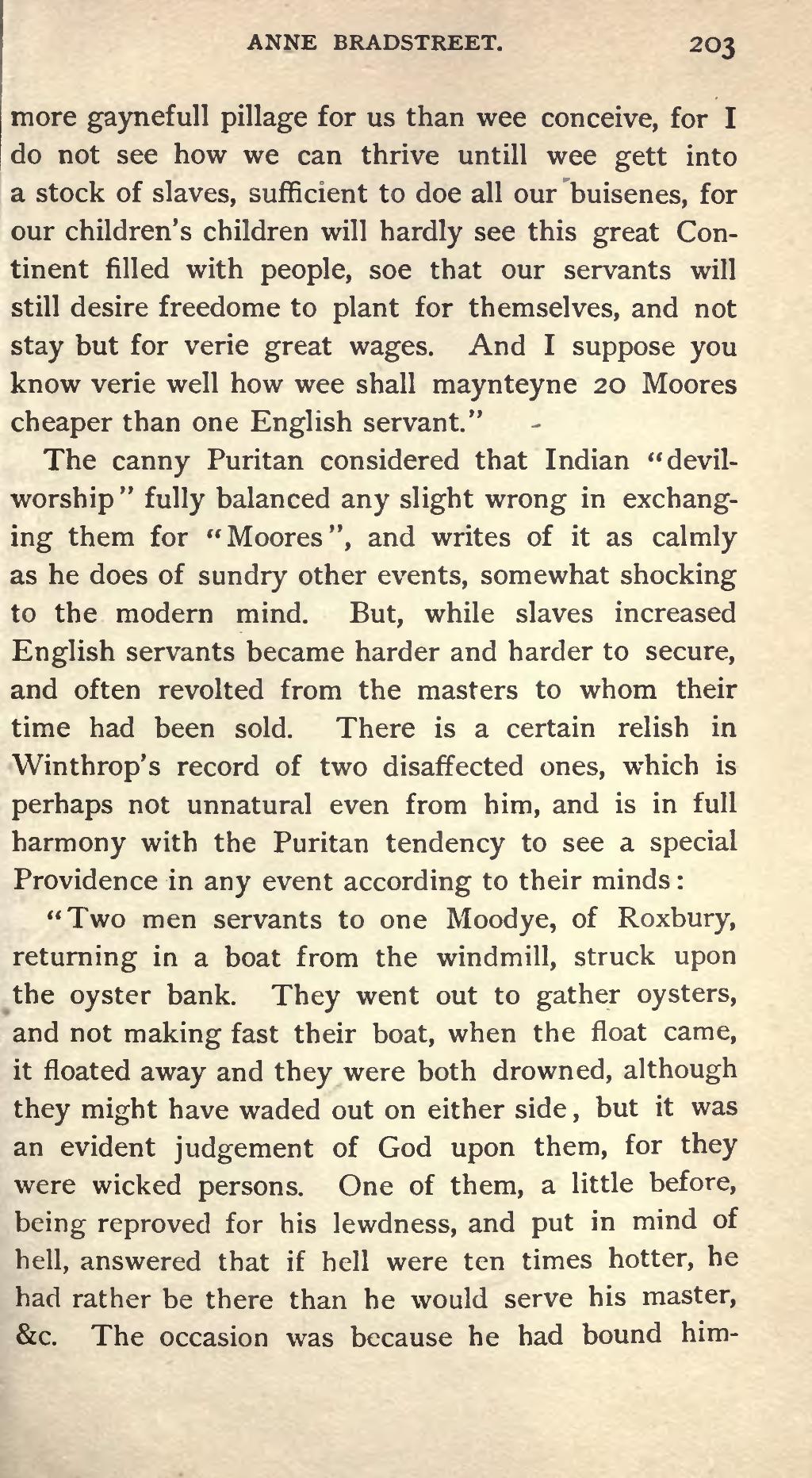more gaynefull pillage for us than wee conceive, for I do not see how we can thrive untill wee gett into a stock of slaves, sufficient to doe all our buisenes, for our children's children will hardly see this great Continent filled with people, soe that our servants will still desire freedome to plant for themselves, and not stay but for verie great wages. And I suppose you know verie well how wee shall maynteyne 20 Moores cheaper than one English servant."
The canny Puritan considered that Indian "devil-worship" fully balanced any slight wrong in exchanging them for "Moores" and writes of it as calmly as he does of sundry other events, somewhat shocking to the modern mind. But, while slaves increased English servants became harder and harder to secure, and often revolted from the masters to whom their time had been sold. There is a certain relish in Winthrop's record of two disaffected ones, which is perhaps not unnatural even from him, and is in full harmony with the Puritan tendency to see a special Providence in any event according to their minds:
"Two men servants to one Moodye, of Roxbury, returning in a boat from the windmill, struck upon the oyster bank. They went out to gather oysters, and not making fast their boat, when the float came, it floated away and they were both drowned, although they might have waded out on either side, but it was an evident judgement of God upon them, for they were wicked persons. One of them, a little before, being reproved for his lewdness, and put in mind of hell, answered that if hell were ten times hotter, he had rather be there than he would serve his master, &c. The occasion was because he had bound him-
